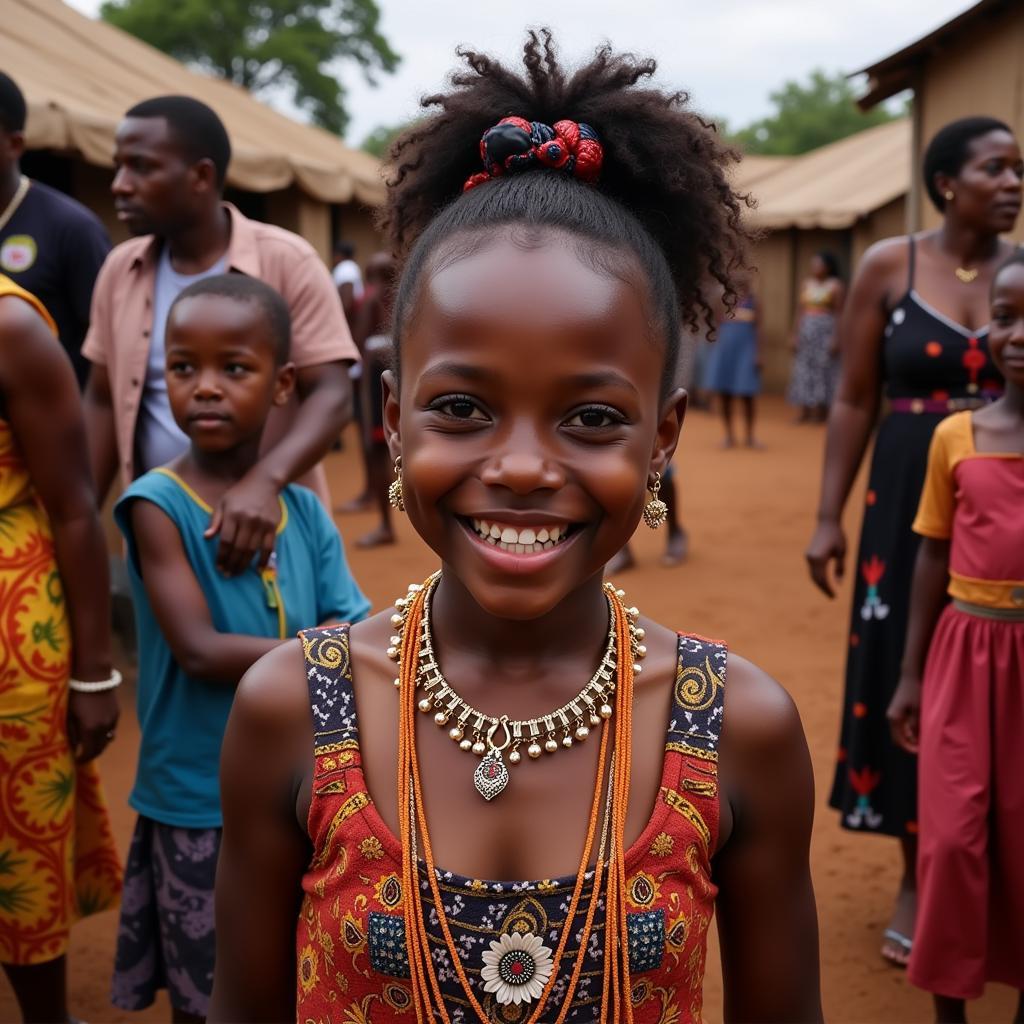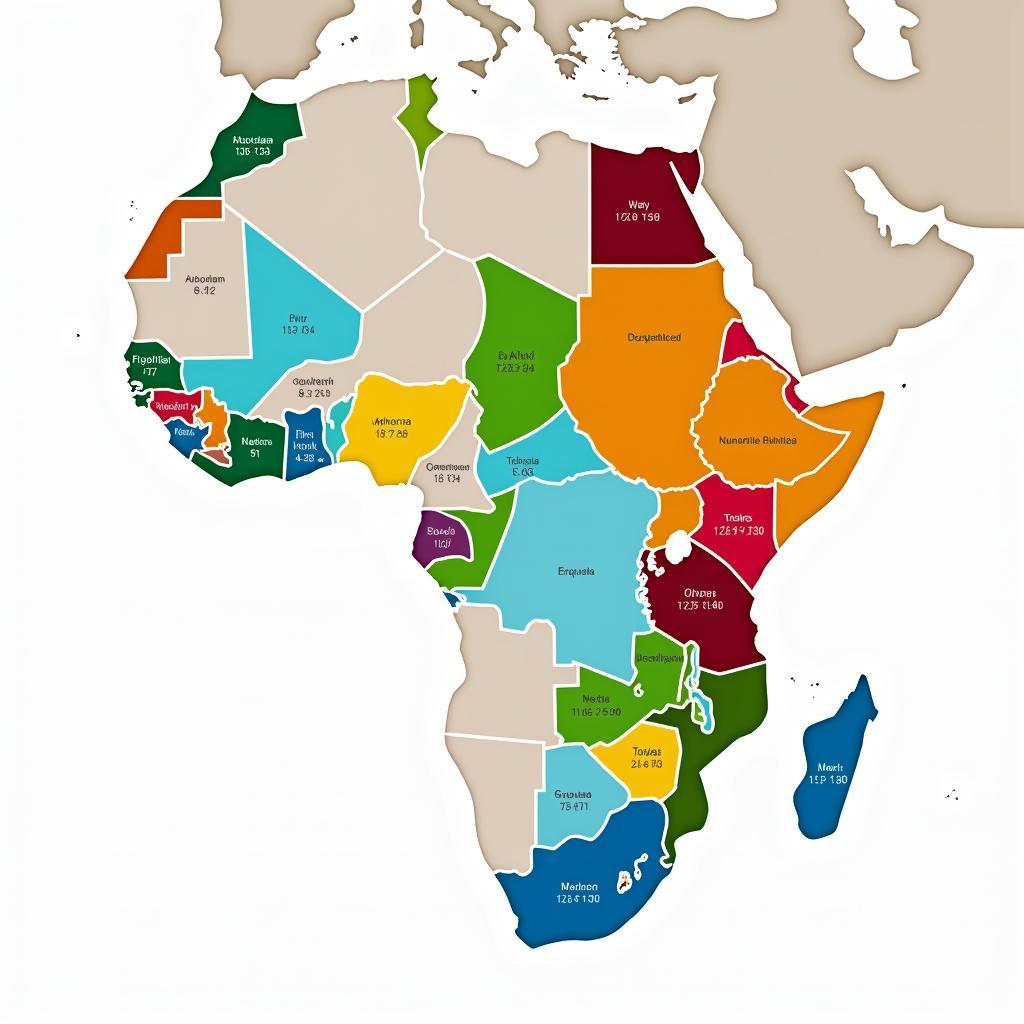African Dictators in 2018: A Look at the Continent’s Leaders
The year 2018 saw a number of African countries grappling with complex political issues, including the presence of strongmen and authoritarian leaders. While the continent has made strides towards democracy and good governance, some nations still struggle with the legacy of autocracy and the challenges of transitioning to more inclusive systems. This article will delve into the complexities of African dictatorships in 2018, examining their impact on society, the challenges they pose to democratic ideals, and the ongoing efforts towards political reform.
The Enduring Legacy of Authoritarian Rule
Africa’s political landscape has been shaped by a history of colonialism, post-colonial instability, and the rise of autocratic regimes. Many African countries emerged from independence with strong centralized leaders who consolidated power and often suppressed dissent. These regimes, often referred to as “Big Man” politics, characterized by a cult of personality and personalized power, have left a lasting imprint on the continent’s political culture.
2018: A Year of Continued Challenges
While the continent has experienced a wave of democratic transitions in recent decades, the year 2018 saw continued challenges to democratic ideals in a number of African countries. Here are some of the key examples:
-
President Paul Biya of Cameroon: Biya, who has been in power since 1982, faced increasing protests in 2018 over constitutional amendments aimed at extending his tenure. These protests were met with a brutal crackdown, highlighting the ongoing struggle for political freedom and human rights in Cameroon.
-
President Omar al-Bashir of Sudan: Bashir’s regime, which had been in power for decades, faced mounting pressure from popular uprisings in 2018. These protests were sparked by rising economic hardship and political repression, ultimately leading to Bashir’s ouster in a military coup.
-
President Robert Mugabe of Zimbabwe: Mugabe’s long rule, marked by political repression and economic mismanagement, came to an end in 2017 with a military takeover. Although a new era of political transition began in Zimbabwe, the challenges of rebuilding trust and establishing democratic institutions remain significant.
The Impact of Dictatorships
The presence of dictators in Africa has had profound consequences for the continent’s development and well-being. These consequences include:
-
Economic Decline: Many authoritarian regimes have implemented policies that stifle economic growth, favor cronyism, and lead to widespread corruption. This has hindered investment, created inequality, and hampered the development of strong and sustainable economies.
-
Political Instability: Dictatorships often suppress dissent and erode civil liberties, creating an environment of fear and political instability. This can lead to social unrest, violent conflicts, and the erosion of the rule of law.
-
Human Rights Violations: Dictatorial regimes frequently violate human rights, suppressing freedom of speech, assembly, and the press. These violations have often taken the form of arbitrary detention, torture, and extrajudicial killings.
The Struggle for Democracy
Despite the challenges, many African countries have made significant progress towards democracy and good governance. However, the road to lasting democratic change remains complex and requires sustained efforts on multiple fronts.
-
Civil Society Empowerment: Strengthening civil society organizations, including independent media, human rights groups, and advocacy organizations, is crucial for holding governments accountable and promoting democratic values.
-
Free and Fair Elections: Conducting free and fair elections, with a transparent process and independent oversight, is essential for ensuring that the will of the people is reflected in government.
-
Rule of Law: Establishing a strong and independent judiciary, capable of upholding the rule of law and protecting individual rights, is vital for a stable and democratic society.
Expert Perspective
Professor Amina Mohamed, an expert in African Politics: “The fight for democracy in Africa is a long and arduous journey, but one that is essential for the continent’s future. While we have witnessed significant progress, it’s critical to recognize that democratic institutions remain fragile in many countries. The presence of authoritarian leaders, coupled with the challenges of poverty, inequality, and conflict, continues to pose significant obstacles to democratic consolidation.”
Moving Forward: A Path to Democratic Reform
The path to democratic reform in Africa requires a multifaceted approach, encompassing:
-
Economic Development: Promoting inclusive economic growth, reducing poverty, and creating opportunities for all citizens are crucial for building a foundation for stable democracies.
-
Education and Empowerment: Investing in education, particularly for girls and women, is essential for fostering informed and engaged citizens who can participate actively in the political process.
-
Regional Cooperation: Strengthening regional organizations and promoting regional cooperation can help countries address shared challenges and support democratic transitions.
Conclusion
While the presence of African dictators in 2018 highlighted the continued struggles for democracy on the continent, it also underlined the resilience and determination of many Africans seeking a better future. The fight for democracy is ongoing, and it demands continued commitment from governments, civil society, and the international community. As we look towards the future, the journey towards democratic consolidation in Africa remains a crucial goal, essential for realizing the continent’s full potential.
FAQ
Q1: What are some of the key challenges facing democracy in Africa?
A1: The key challenges include the legacy of authoritarian rule, economic inequality, widespread poverty, corruption, and the potential for violent conflict.
Q2: What are some examples of African dictators who were in power in 2018?
A2: Some prominent examples include President Paul Biya of Cameroon, President Omar al-Bashir of Sudan, and President Robert Mugabe of Zimbabwe.
Q3: What is the role of civil society in promoting democracy in Africa?
A3: Civil society plays a crucial role by holding governments accountable, advocating for human rights, and promoting democratic values.
Q4: What are some ways to address the economic challenges facing African countries?
A4: Strategies include promoting sustainable development, investing in infrastructure, diversifying economies, and promoting good governance.
Q5: What is the role of the international community in supporting democratic reform in Africa?
A5: The international community can provide financial and technical support, promote dialogue and mediation, and hold governments accountable for human rights violations.



